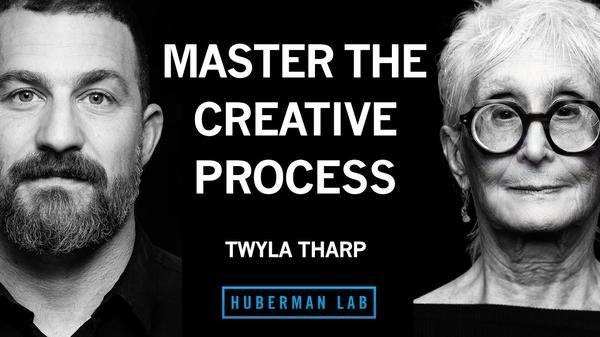
How Nature & Other Physical Environments Impact Your Focus, Cognition & Health | Dr. Marc Berman
Andrew Huberman
Jul 14, 2025
Mindsip insights from this episode:
Avoid passive activities that drain your attention resources
Low cognitive demand activities like scrolling social media or watching television are not restorative and actually deplete your finite directed attention resources.
Restore attention by immersing in nature
Going into nature restores your finite 'directed attention' by softly engaging your inexhaustible 'involuntary attention,' which is captured by interesting things like waterfalls or rustling leaves.
Experience cognitive restoration from any nature walk, regardless of enjoyment
You receive the same cognitive restoration from a walk in nature even if you don't enjoy it, such as walking in the freezing cold, suggesting the benefit is not simply mood-driven.
Engage with nature's patterns for mental ease
Our brains process the fractal patterns and redundant information in nature more efficiently, similar to how a JPEG file is compressed, which is why it feels less mentally taxing.
Take a 20-minute nature walk to restore focus
A 20-minute solitary walk in nature, without your phone or music, is a highly effective protocol for restoring your ability to focus.
Utilize nature walks to enhance cognitive benefits in depression
Individuals with clinical depression who were prompted to ruminate received even stronger cognitive benefits from a nature walk than non-depressed individuals.
Engage with curved edges to inspire spiritual reflection
Simply viewing images with more curved edges, even when scrambled beyond recognition, causes people to think more about spirituality and their life journey.
Train your focus through meditation, not rest
Unlike a restorative nature walk, meditation is a form of focus training that actively uses, rather than replenishes, your directed attention.
Experience nature to achieve a restful brain state
Being in nature may push the brain into a more 'fractal' state of activity, which is a neurological sign of exerting less cognitive effort and being in a rested state.
More from
Andrew Huberman
You also might be interested in
The Hidden Damage That Happens "Behind-The-Scenes" In The Adult Entertainment Industry, With Former Adult Actress Felicity Feline
The Science of Erotic Altered States | Biohacking Sex
Neuroscientist: If You’re Feeling THIS, You’ve Lost Touch With Your True Self
Neuroscientist: If You Feel THIS, You're Living the Wrong Life (Unlock The One You're Meant For)
Drain your Brain, Protect it from Alzheimer’s Disease











